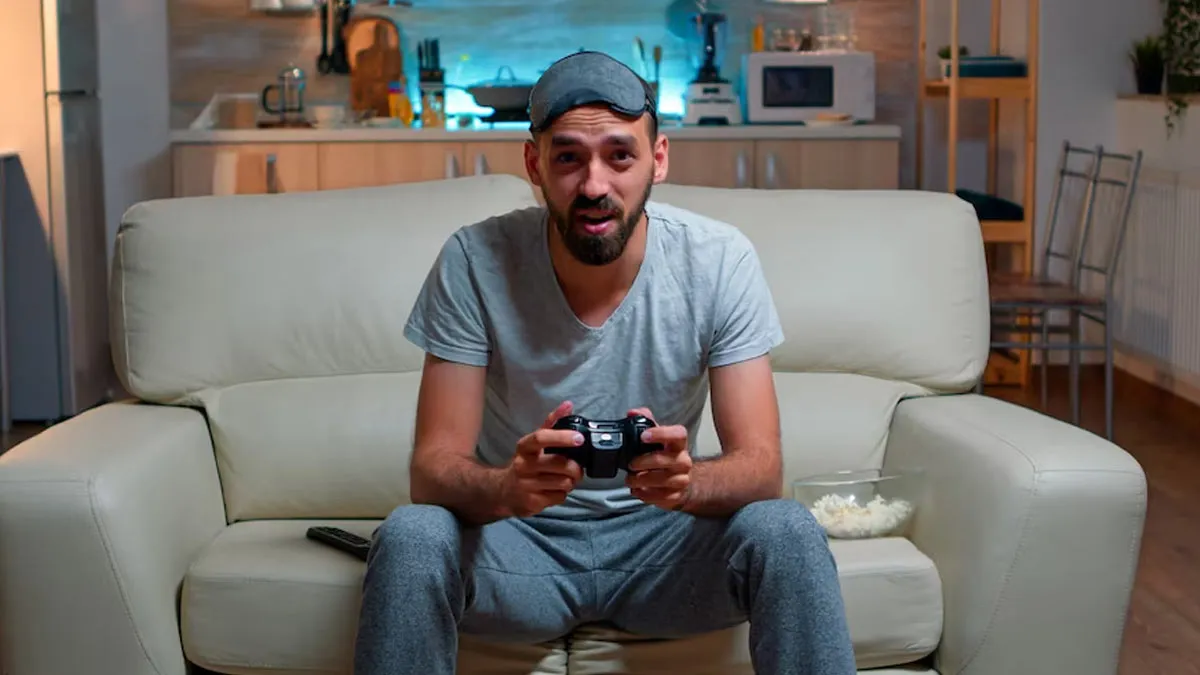
The gaming culture is becoming increasingly popular as it can be a great way to relax and take a break from everyday life. While occasional gaming may be a good choice to make, getting addicted to it can pose various health challenges. Surprisingly, this addiction is not limited to children but extends to adults too. We spoke to Dr Santosh Bangar, Senior Consultant Psychiatrist, Gleneagles Hospitals, Parel, Mumbai, who explained the effects of gaming habits on your mental health.
Table of Content:-
Negative Effects of Gaming Habits
Gaming habits can negatively impact mental health in various ways. Here are some of the common problems faced by people, as listed by Dr Bangar:

- Lack of sleep
- Mood swings
- Irritability
- Neglecting responsibilities
- Social withdrawal
- Feeling anxious or restless when not gaming
Link Between Gaming and Mental Health Challenges
Excessive gaming can have a significant impact on your mental health and lead to issues like anxiety, stress, overthinking, and depression. "Spending too much time gaming can lead to isolation, lack of physical activity and a disrupted sleeping schedule. This can significantly increase unrealistic expectations, making it difficult to cope with real-life situations," said Dr Bangar.
Also Read: Internet Gaming Disorder: Here's How Gaming Addiction Can Affect Your Child's Mental Health
Potential Triggers or Risk Factors for Gaming Addiction

Various factors and triggers can make gaming an unhealthy addiction. This can include triggers like taking too much stress, loneliness, social anxiety, low self-esteem, and constant need to escape from reality or overwhelming situations. Games that include frequent rewards and challenges can also make it difficult to stop playing.
According to Harvard Health Publishing, exposure to the severe violence often depicted in video games may desensitise teenagers and young adults to such aggression, potentially resulting in emotional issues and even encouraging some to engage in violent behaviour.
Warning Signs your Gaming Habits are Interfering With your Life
"If your gaming habits are interfering with your daily life, such as poor academics, relationship issues, mood swings, limited social interaction, loneliness, missing various deadlines, and neglecting your health, then this may be the problem that needs to be addressed promptly. Feeling guilty about spending too much time playing games but still unable to stop can be a warning sign of unhealthy addiction," emphasised Dr Bangar.
Also Read: The Risk Of Mobile And Gaming Addiction In Children: How Parents Can Tackle The Problem
How To Maintain the Balance?
It becomes crucial to maintain a healthy balance to avoid making gaming an unhealthy habit. Follow these tips to avoid gaming addiction:

- Set time limits
- Take frequent breaks
- Stay physically active
- Engaging in hobbies other than gaming
How To Offer Support To Those Addicted To Gaming?
If your children are struggling with gaming addiction, it becomes crucial to have an open conversation without being judgmental. Make them understand how unhealthy addiction can not only affect their physical health but also their mental well-being. Seeking professional help can be beneficial.
According to a study published by the Mental Health Foundation, it was found that your overall well-being related to gaming is influenced by how well your ethnicity, gender, and sexuality are represented in video or online games. This highlights the importance of finding games and online communities that foster a positive self-image for young people.
What You Should Know
It is important to remember that gaming can also have a positive influence on your brain and behaviour. Gamers usually have an improved working memory and sustained attention. Additionally, it may improve your mood by reducing negative effects and promoting enjoyment, flow, and motivation. Hence, it is crucial to engage in gaming in moderation to avoid its addiction and harmful consequences.
[Disclaimer: This article contains information provided by an expert and is for informational purposes only. Hence, we advise you to consult your professional if you are dealing with any health issue to avoid complications.]
Also watch this video
How we keep this article up to date:
We work with experts and keep a close eye on the latest in health and wellness. Whenever there is a new research or helpful information, we update our articles with accurate and useful advice.
Current Version